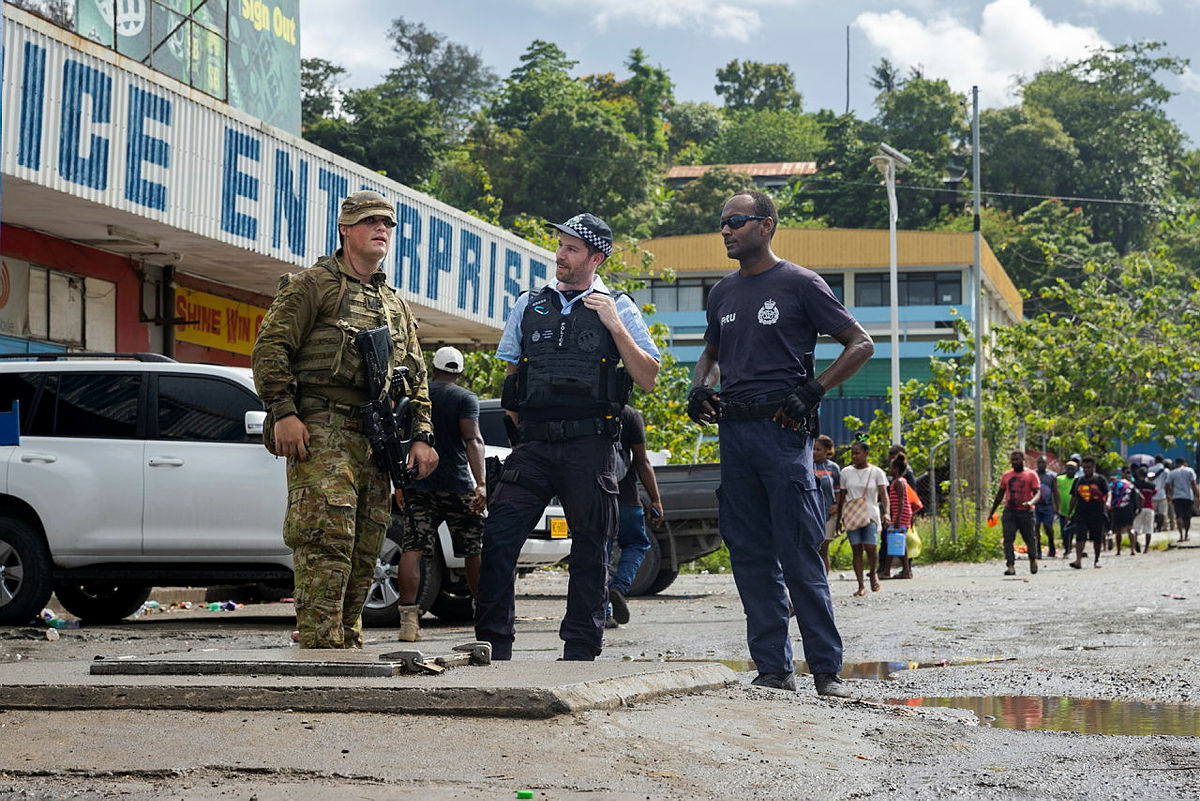
The Australian Federal Police’s international collaboration efforts have long been the crown jewel of the nation’s law enforcement engagement. The AFP’s international liaison network is the most visible and operationally successful element of these efforts. It is, however, a highly diverse endeavour that involves an array of bi-, mini- and multilateral initiatives. This significant work, which directly contributes to community safety at home, is now at risk because the geopolitical environment in which cooperation with some crucial jurisdictions occurs is becoming increasingly complex.
Active, ongoing and consistent formal and informal engagement in the international law enforcement community has been an AFP hallmark. While this work may occasionally include diplomatic talkfests, it has a sharp operational focus that has resulted in tangible results with international partners, including China. AFP officers serving overseas make substantial contributions to disrupting transnational serious and organised crime. The performance statistics speak volumes about their success. For example, AFP officers aided overseas police in 2020–21 in seizing 19.4 tonnes of illicit drugs.
With staff positioned in 33 countries in 35 posts and on seven development missions, the AFP has a substantial international presence and global reach for a national agency.
The AFP’s presence is further enhanced and enriched through participation in multilateral cooperation through international government organisations like Interpol and the United Nations Office on Drugs and Crime.
The AFP has established itself as a partner of choice with various regional organisations, including Europol and ASEANAPOL.
It has also been a critical advocate for law enforcement minilateralism, albeit unknowingly, by championing the Five Eyes Law Enforcement Group. Comprising the law enforcement agencies from the Five Eyes countries, the group uses and leverages its members’ collective capabilities to address transnational criminal and national security matters.
The AFP’s international commitments fall into four basic categories: capability development, police‐to‐police cooperation, formal mutual assistance cooperation and intelligence exchange. Most of its work on transnational serious or organised crime efforts transitions between two or more categories.
The AFP conducts capability-development activities throughout the Pacific and Asia, including training and mentoring and case‐specific, police‐to‐police cooperation involving the exchange of intelligence. These relationships are almost always transactional and have a tactical focus.
In comparison, police‐to‐police cooperation between the AFP and law enforcement agencies in New Zealand, the UK, Canada and the US tended to be much more strategically focused until quite recently. Increasingly, this engagement is undertaken at the committee level, through formal strategic intelligence exchange activities and with the exchange of tactical intelligence. At the tactical and operational levels, officers exchange information formally and informally.
Tribalism, so often a challenge in law enforcement at the national level, appears to be far less of an issue at the international level. This is partly because of the separation of national security and policing roles in the Australian national security framework. For example, while the US’s Drug Enforcement Agency and Federal Bureau of Investigation have national security connections and roles, the AFP remains focused on law enforcement and transnational serious and organised crime. The AFP remains engaged within the international law enforcement community from a unique perspective focused operationally.
Outside of the Five Eyes countries, the AFP’s success has been built on hard-earned police-to-police relationships that, in many cases, like that with the Indonesian National Police, have withstood the ups and downs of tumultuous diplomatic relations. In other instances, the AFP has had to carefully navigate sensitive issues and ethically challenging impediments to information sharing, including the use of the death penalty by some of its partners.
Until recently, the AFP had even been able to avoid the impacts of the changing nature of the Australia–China diplomatic relationship. It has had permanent liaison officers in Hong Kong, Beijing and Guangzhou for many years. Through financial investments in activities such as joint training, the AFP has established a privileged relationship. One notable result was Taskforce Blaze, a collaborative effort between Australian and Chinese police focused on stemming the flow of ice to Australia. The taskforce was only possible because of Australia’s long-term investment in building trust between the AFP and Chinese police.
Today, the Chinese Communist Party is making numerous efforts to disrupt the stability of multilateralism. The Australian government is, in contrast, actively promoting multilateralism. For the AFP, bilateral police-to-police cooperation has long been the most effective means of disrupting transnational serious and organised crime. It can avoid the trap of being seen to be acting inconsistently with Australian foreign policy by promoting its tiered approach to bi-, mini- and multilateral engagement based on functionality.
The AFP’s relationship with Chinese police also provides the type of backroom communication channel so often used between Moscow and Washington to defuse tension during the Cold War. Australia should be careful not to cut off this important line of communication.
There’s also an increasing frequency of reported human rights abuses by Chinese police, as well as in Hong Kong. Of course, the AFP and its officers deplore such actions. Still, there are good law enforcement and diplomatic reasons for continuing these relationships. In the first instance, police-to-police cooperation with China disrupts organised crime. But police-to-police cooperation requires a two-way flow of information, which isn’t without risk. However, this is a familiar challenge and comparable with the challenge of cooperating with jurisdictions—like China—that apply the death penalty.
In 2020–21, the AFP’s international work resulted in reducing $7 billion of harm through international drug seizures. This vital work must continue, but achieving these kinds of results seems set to get harder not easier.

